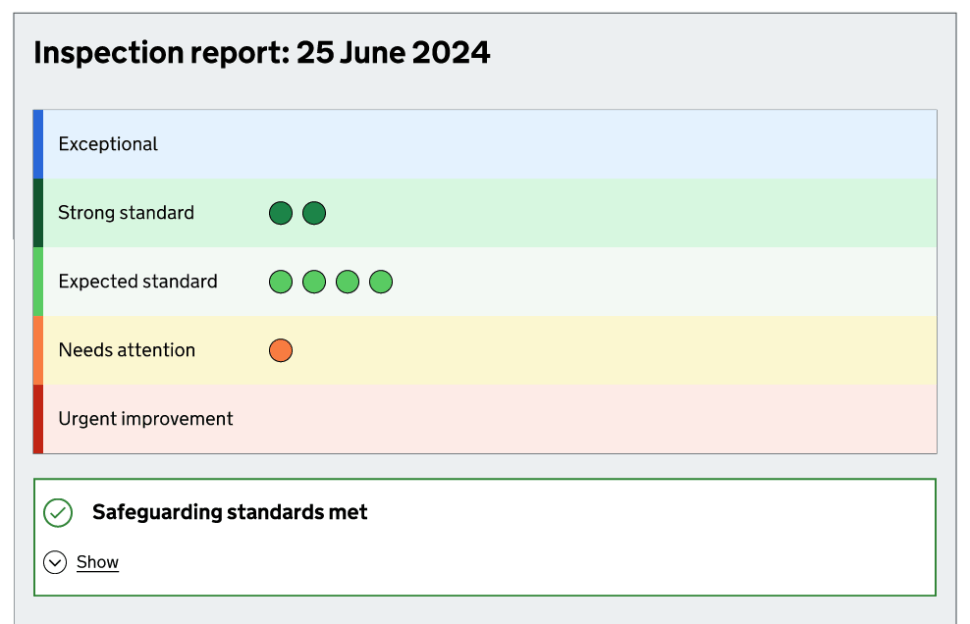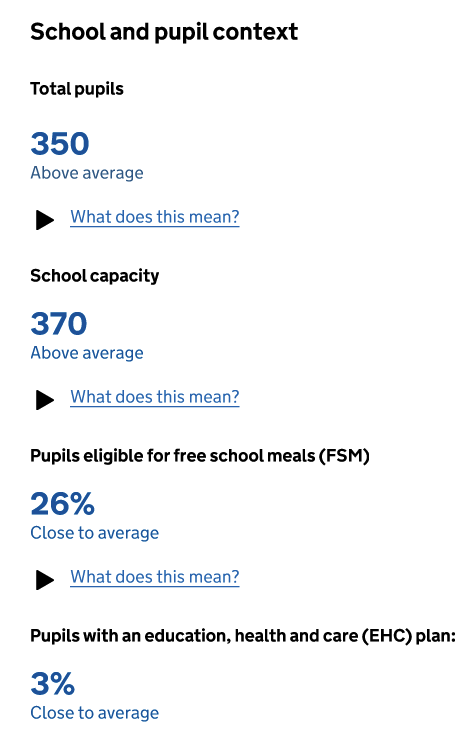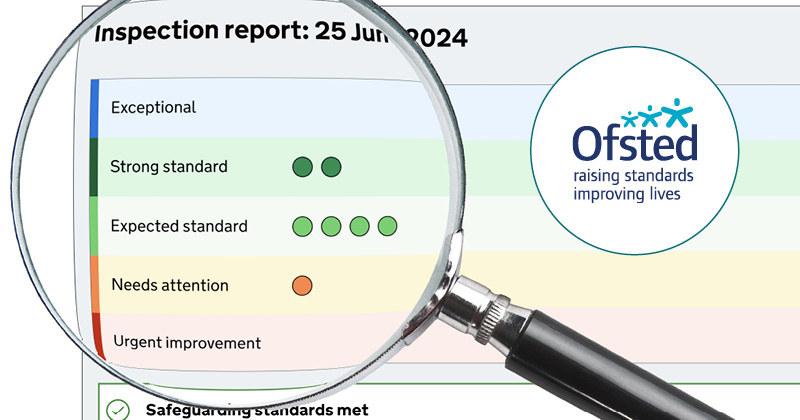Ofsted has renamed its controversial five new headline grades, reduced the number of core areas for inspection and will enlarge its inspection teams in response to its consultation on planned new report cards.
The watchdog has also published a sample report card with narrative judgments and contextual information alongside grades.
For the purposes of this round-up, we have focused on things Ofsted is changing as a result of its consultation.
Ofsted is also pressing ahead with already-announced plans for all inspections to be full inspections, for increased monitoring activity, a replacement to its current deep dives approach and other measures consulted-on earlier this year.
Here’s what you need to know…
1. ‘Confusing’ grades renamed
Ofsted’s original consultation proposed that schools would be given one of five grades for each judgment area. These were going to be…
- causing concern
- attention needed
- secure
- strong
- exemplary
The watchdog has now renamed these grades as follows…
- urgent improvement
- needs attention
- expected standard
- strong standard
- exceptional
Ofsted said it had made the changes following “concerns from professionals and parents about the terminology used to describe grades, such as ‘secure’ being confusing and ‘causing concern’ being too harsh on providers”.
It comes after Schools Week revealed earlier this year that Ofsted was considering renaming the ‘secure’ grade in proposed new report cards, amid concerns it won’t be clear to families where it sits on the new scale.
The watchdog also said it had “tightened the definitions of ‘expected standard’ and ‘strong standard’ so the differentiation between both is clearer across all toolkits”.
Schools Week ran a blind online survey asking readers to distinguish between the criteria for the “secure” and “strong” descriptors. On average, the more than 3,000 respondents got two of the five wrong.

2. Core inspection areas reduced from eight to six
The original consultation proposed eight core inspection areas for schools, plus early years and sixth form if applicable.
The proposed core areas were:
- inclusion
- curriculum
- developing teaching
- achievement
- behaviour and attitudes
- attendance
- personal development and well-being
- leadership and governance
Ofsted will now merge ‘developing teaching’ with ‘curriculum’ and the ‘attendance’ judgment will be merged with ‘behaviour and attitudes’.
That means the new list of core areas is:
- inclusion
- curriculum and teaching
- achievement
- attendance and behaviour
- personal development and wellbeing
- leadership and governance
As originally proposed, safeguarding will be judged separately, as either “met” or “not met”.
3. School context ‘narrative’ to run alongside grades
Ofsted has faced widespread calls from the sector to replace grading with narrative descriptions of schools.

It has resisted these calls. But the watchdog said report cards will now have a “combined approach using both a 5-point scale and a narrative explanation for each grade across all evaluation areas”.
A sample report card distributed by the watchdog shows that at the top of the page, visitors will see a colour-coded summary of how many inspection areas have met each grade.
Below that, visitors will be able to click on each judgment area to see several paragraphs of narrative verdict.
The report cards will also show contextual information about a school, such as whether its pupil numbers, prevalence of SEND and deprivation are above or below average.
4. Toolkits ‘tightened up’ after backlash
Ofsted pledged earlier this year to publish toolkits for each evaluation area to “take any mystery out of inspection, so providers can be clear about what we will and, importantly, will not look at”.
These will “orient around the ‘expected standard’” grade, the watchdog said today.
The “likely three most commonly awarded grades” – ‘needs attention’, ‘expected standard’ and ‘strong standard’ will appear on one page.
Then the “two extremes” – ‘urgent improvement’ and ‘exceptional’ – will sit on the following page.
Ofsted said the ‘expected standard’ is in the middle of the page of the toolkit “because this is what we would typically expect to see on inspections.
“It covers the statutory, professional and non-statutory guidance that providers are already expected to follow.”
Meanwhile, the ‘strong standard’ has “tighter definitions”, and “looks for evidence of practice to be consistent, embedded and highly impactful”.
5. Exceptional WON’T need an Ofsted Academy submission
Ofsted had planned to require inspectors to submit examples of ‘exemplary’ practice to Ofsted Academy, the watchdog’s training and development arm, which would then sign off that a top grade could be awarded.
But this plan has been dropped because “many respondents found this too complex or were worried it would create an additional burden”.
“Instead, inspectors will evaluate ‘exceptional’ practice in the same way as other grades: using their evidence and applying the toolkit during inspection.”
Ofsted said “all the ‘strong standards’ need to be met” for an ‘exceptional’ grade to be considered. If they are, inspectors will then look at their evidence against the standards for the top grade.
Ofsted said ‘exceptional’ practice needs to be “sustained” and “evident over time rather than a recent improvement” and “needs to have a transformational impact” on the outcomes of disadvantaged youngsters.
6. Extra inspector to ‘ease anxiety for leaders’
Ofsted said it had “heard concerns raised through the consultation about the additional workload that some feared the revised framework could generate, and the implications for the well-being of the professionals we inspect”.
As a result, the watchdog said it was “increasing inspection capacity for schools” by adding an extra inspector to teams for one day of all full inspections.
Having this extra inspector “should allow the lead inspector more time to focus on engaging with leaders, coordinating their inspection team, and overseeing and quality assuring the inspection”.
“This means we can reduce pressure on leaders through the inspection process. The extra inspector will enable lead inspectors and leaders to really collaborate across the inspection, and should ease any anxiety for leaders by acting as a regular point of contact, while allowing the wider inspection team the time to gather evidence to inform their evaluations.”
7. Inspections restart November 10 with volunteer schools
School inspections will resume from November 10, Ofsted has confirmed, and said this will give providers “at least a full two months to become familiar with the changes”.
When inspections resume, Ofsted will “prioritise volunteers for full inspections in the weeks between November 10 and Christmas”.
These inspections will result in a report card with a “complete set of grades”.
Ofsted will then return to the normal schedule for state-funded schools, with full inspections every four years, “towards the end of the period and not before December 1”.
However, if there are enough volunteers, “we will continue to prioritise them after December 1. We will not carry out inspections in the final week before Christmas”.
*Editor’s note: Ofsted publicly discredited a Schools Week story in May that reported the watchdog was considering delaying the roll-out of routine report card inspections. However, the plans today reveal the return of routine inspection has been delayed until at least December 1, and potentially January.
8. Ofsted ‘explore an area’ to provide school context
As well as providing more contextual information on report cards itself, Ofsted will introduce a new service called “Ofsted: explore an area”.
This “will bring together data to show what education provision is like in and around a local area” and “explain how the provider’s performance sits within its local context”.
It will replace Ofsted’s Area Insights service in November and be published publicly.
Inspectors will get further training on how to use data as a “starting point for understanding context”.
The watchdog has also started to develop a “similar schools” comparison measure to help inspectors and schools “understand how schools compare with those in a similar context”.
“We will discuss with stakeholders and experts whether this measure may be a valuable way of adding more contextual information for inspections. We will ensure that it is consistent with any approach the DfE adopts in this area and work closely together as we develop ours.”















Your thoughts